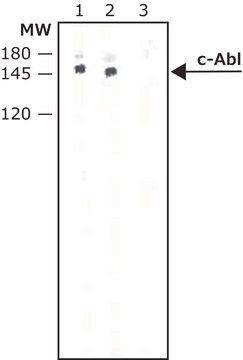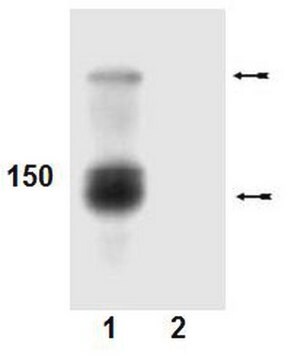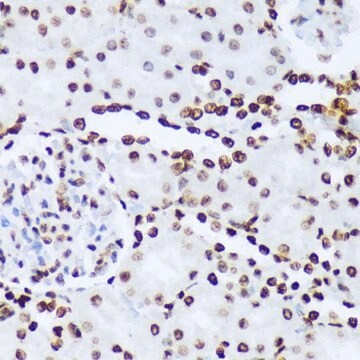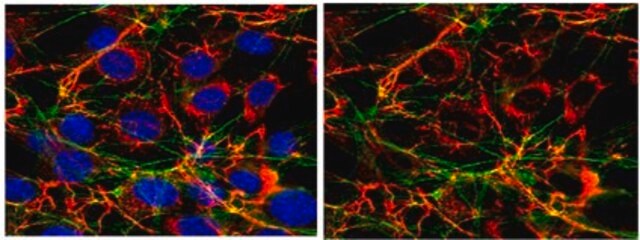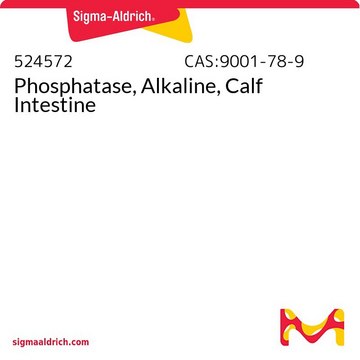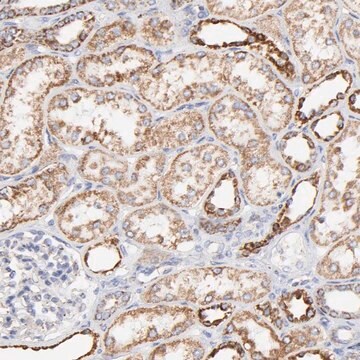Wichtige Dokumente
C5240
Anti-phospho-c-Abl (pTyr412) antibody produced in rabbit
affinity isolated antibody, buffered aqueous solution
Synonym(e):
Anti-ABL, Anti-BCR-ABL, Anti-CHDSKM, Anti-JTK7, Anti-bcr/abl, Anti-c-ABL, Anti-c-ABL1, Anti-p150, Anti-v-abl
About This Item
Empfohlene Produkte
Biologische Quelle
rabbit
Qualitätsniveau
Konjugat
unconjugated
Antikörperform
affinity isolated antibody
Antikörper-Produkttyp
primary antibodies
Klon
polyclonal
Form
buffered aqueous solution
Speziesreaktivität
human
Methode(n)
western blot: 1:1000 using fibroblasts transfected with oncogenic δSH3-Abl
UniProt-Hinterlegungsnummer
Versandbedingung
dry ice
Lagertemp.
−20°C
Posttranslationale Modifikation Target
phosphorylation (pTyr412)
Angaben zum Gen
human ... ABL1(25)
Allgemeine Beschreibung
Anti-phospho-c-Abl [pTyr412] specifically recognizes c-Abl phosphorylated at tyrosine 412 (~140-150 kDa). The antibody detects human c-Abl. Mouse c-Abl (100% homology) and rat c-Abl is expected to cross react.
Immunogen
Anwendung
Physikalische Form
Haftungsausschluss
Sie haben nicht das passende Produkt gefunden?
Probieren Sie unser Produkt-Auswahlhilfe. aus.
Lagerklassenschlüssel
10 - Combustible liquids
WGK
WGK 1
Flammpunkt (°F)
Not applicable
Flammpunkt (°C)
Not applicable
Hier finden Sie alle aktuellen Versionen:
Besitzen Sie dieses Produkt bereits?
In der Dokumentenbibliothek finden Sie die Dokumentation zu den Produkten, die Sie kürzlich erworben haben.
Unser Team von Wissenschaftlern verfügt über Erfahrung in allen Forschungsbereichen einschließlich Life Science, Materialwissenschaften, chemischer Synthese, Chromatographie, Analytik und vielen mehr..
Setzen Sie sich mit dem technischen Dienst in Verbindung.